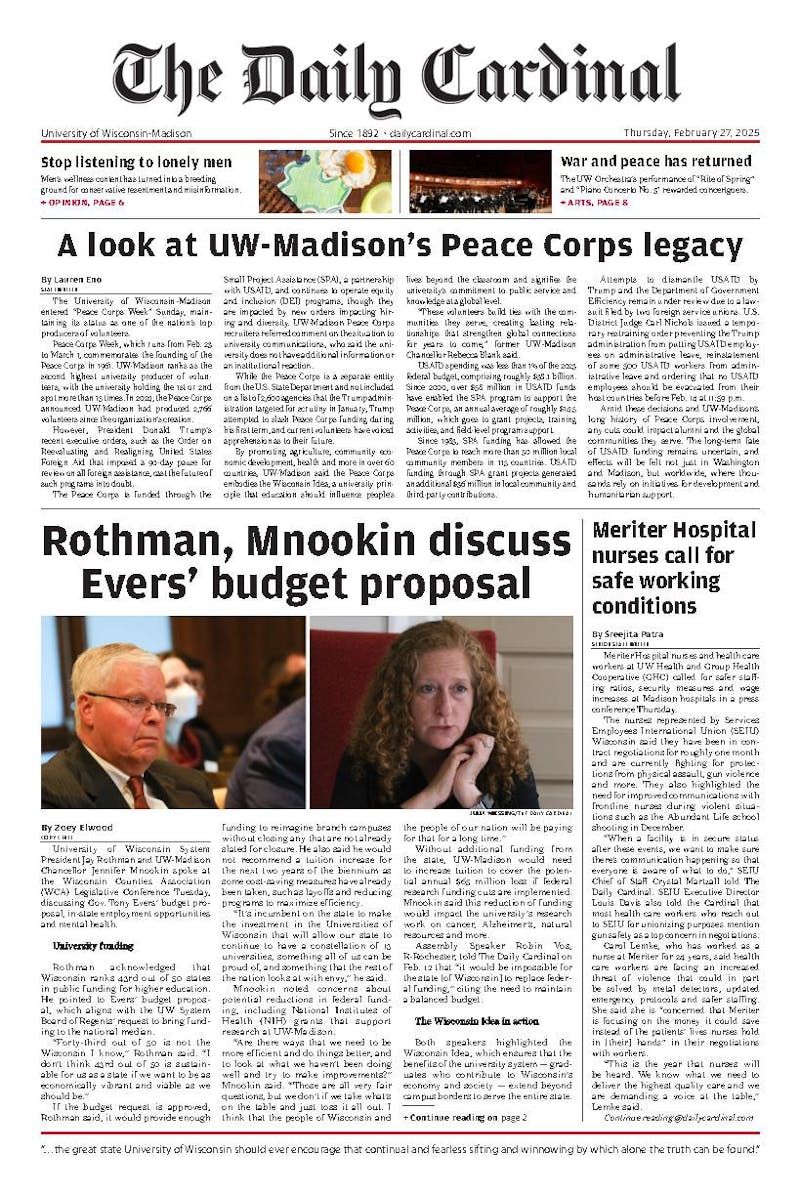The week after election, I and many others were left with heavy hopelessness and doubt in a country that is supposed to embody equality for all, but inevitably fails to because of its initial seclusion of indigenous people, people of color, women, etc. Some artists at UW-Madison put all that energy of disappointment with society on stage. In a series of movement and dance, UW-Madison Professor Li Chiao-Ping and students capture the essence and conflict of life. The “Weight of Things” confronts what we as humans place value on and what we see as important. The show also addresses the hardships of women and the constraints our society has placed on them, having to live up to standards of beauty while constantly battling within themselves to have as much power as men.
Although some dances were extremely abstract, there was one dance in particular that truly carried out its theme of the weight that women carry. “A lady must think like a man, act like a lady, work like a horse and look like a girl.” These words are announced from the mouth of one of the dancers, while she wears a white dress to show the pressure that women must be “beautiful” while working hard. The dance, white dress and monologue serve as a metaphor for how women must constantly balance many things at once while still dreaming of what she would like to be.
“Being a woman is hard,” exclaimed the dancer in the white dress. “But I am still here. We are still here.” Her proclamation despite the “weight of things” and being woman was transformative and embodied that women really are powerful human beings.
“Weight of Things” also used voice-overs to express how our extensive investments into money, shoes, clothes, and jewelry have become one of our biggest downfalls. “Consume, neglect, forget” and explicitly recurring theme recognized that we consume so much, neglect relationships and forget the importance of life itself. The voice-overs described us as “Victims of a system” and “Machine men.” The dance and voice-over together displayed the ideals of importance we have placed on material things, ultimately making us selfish and divided.
Notably, while the voice-overs were a great element of the show, they did take away from the performance itself. The voiceovers seem to carry more of the theme than the dances, which caused me to pay closer attention to what was being said instead of what was being performed. Without the voice-overs it would have been difficult to grasp the message of the show.
Further, the show did function well as a whole, though it could have functioned better if the transitions from one dance to another were more fluid and cohesive. Doing so would have connected the ideas of being woman and being human more sufficiently.
Lastly, as an audience member I wondered why black and brown women were not represented in the show as part of a woman’s struggle. Black and brown women struggles are extremely different from that of white and Asian women. Seeing those representations on stage would have open the show up to more avenues of exploration of the real struggles in America.
“Weight of Things” made me question if my motives in life are selfish. “Am I wasteful? Have I become a product of machines?” The show made me question if neglecting entire groups of people of human rights and respect will ever be intangible? And ultimately “Will the weight of things ever be light enough for one to be free from society’s constraints?”





